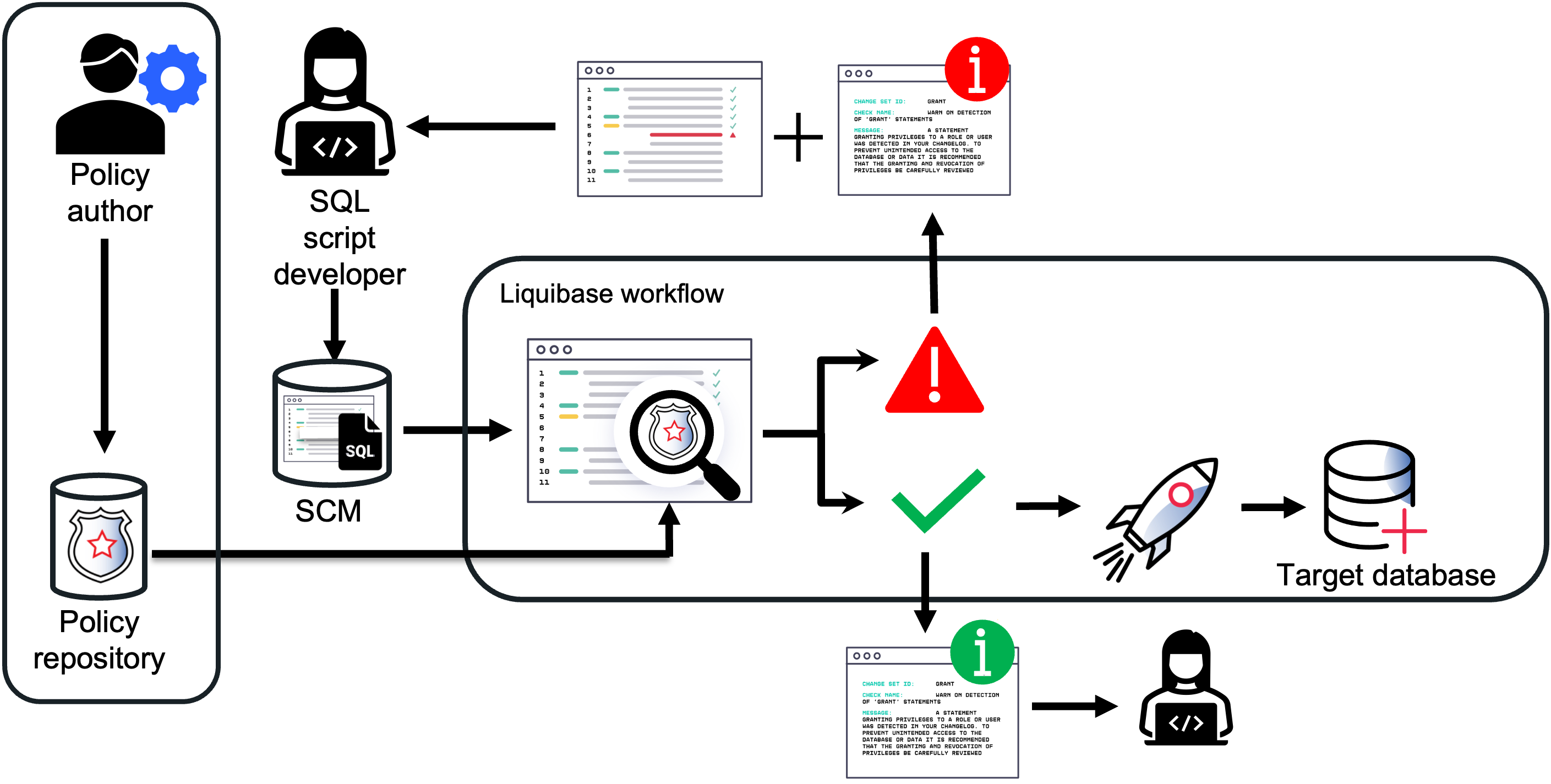Policy Checks
Note: This is a Liquibase Pro feature, so you need a Liquibase Pro License Key to use it.
Liquibase Policy Checks allow you to define and adhere to code standards to ensure compliance and data quality. Using Policy Checks, you can analyze your changelogs, changesets, and SQL for specific commands and patterns that require close review early in the development life cycle. You can integrate this feature into your build and deployment automation.
Policy Checks can run at any point in the workflow. For example, you can set changelog checks to run before deploying any changes, and then run them after deployment to ensure your changelog is still following the rules you established in the check. The same rules apply to database checks. You can run a database check before an update to be sure all is well before deployment, and you can run checks after an update to ensure all DB rules and standards are still intact.
Business Benefits
Policy Checks deliver the following benefits:
- Reduce Errors and Risk: Automatically enforce consistent and high-quality changes that meet your governance requirements.
- Stay Compliant: Catch non-compliant changes and notify developers with Checks Reports in your automation pipeline.
- Increase Productivity: Reduce manual reviews by enforcing policy standards automatically in your CI/CD pipeline.
- Ensure Data Quality: Enforce code standards and correct nomenclature, patterns, and labels to ensure data is entered correctly.
Example Scenarios
- Enforce Standards: Quickly and easily validate naming standards, column links, and other common changes.
- Access/Privileges: Secure your database by getting immediate notice that user and role privileges are being modified.
- Custom Policy Checks: Write unique Policy Checks customized to your organization's governance standards.
High-Level Architecture
This is a high-level overview of how Policy Checks fit together:
- First you must learn how to implement policy checks.
- Define policies to be enforced in a central location.
- Integrate checks into automation to validate each change.
- Review checks report.

Related topics
- Run a Policy Check
- Customizing a Policy Check
- Disable Policy Checks
- Use Git Bash with Policy Checks
- Use the Checks Settings Configuration File
- Use Policy Checks in Automation: Severity and Exit Code
- Policy Checks JSON Object
- Verify naming conventions in your database
- Check Chains
- Filter the Checks table output

